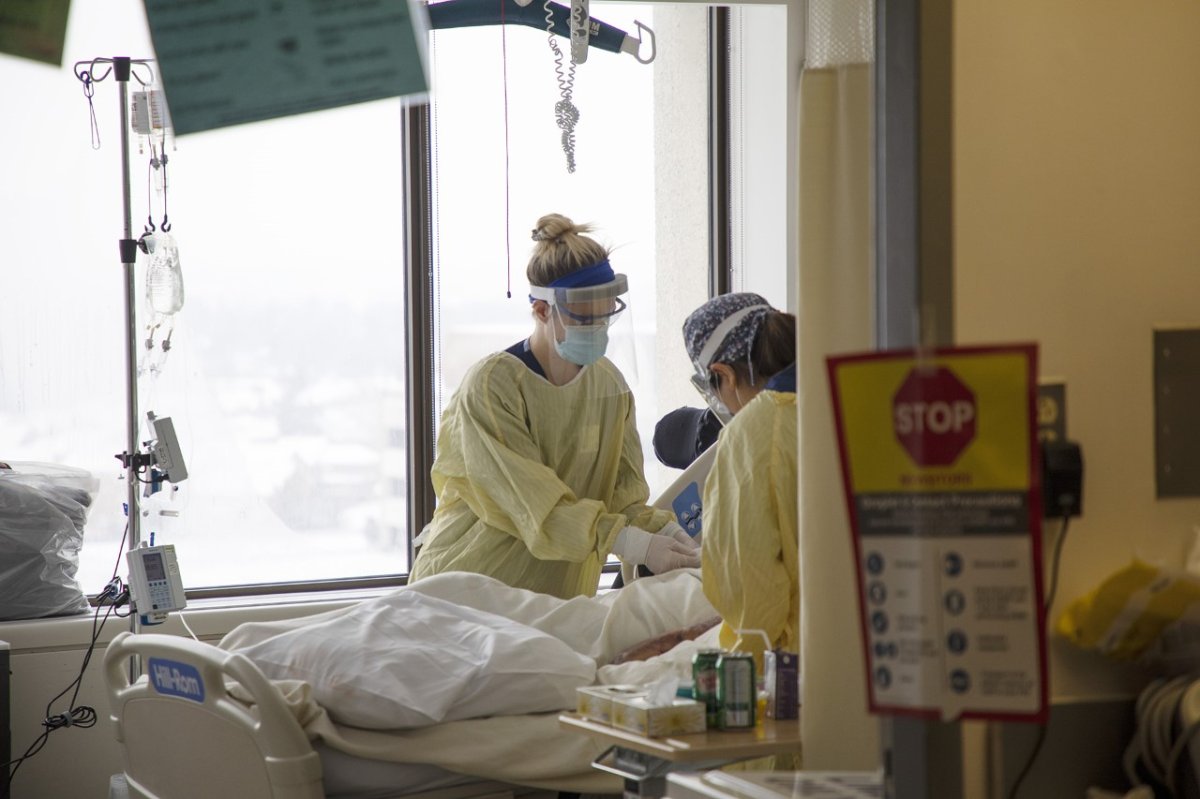A team of researchers with The Ottawa Hospital have found patients discharged from the intensive care unit have higher risks of suicide and self-harm after going home compared with those treated in acute care.

The research also suggests that younger patients with histories of mental illness could be especially susceptible to suicide attempts following especially traumatic stays in the ICU.
These eye-opening connections come as Ontario’s ICUs brim with COVID-19 cases in increasingly younger populations.

The findings from researchers at The Ottawa Hospital, the Institut du Savoir Montfort, ICES and the University of Ottawa were published Wednesday in the BMJ, a medical journal in the United Kingdom.
The researchers examined all health records from ICU survivors across Ontario from 2009 to 2017, representing about 423,000 patients. Of that sample, 750 people (about 0.2 per cent) of people later died by suicide, compared with 2,427 (roughly 0.1 per cent) of the three million non-ICU hospital survivors examined in the study.
While the overall incidents of suicide after leaving the hospital remain low, researchers say the data shows a 22 per cent higher risk of suicide and 15 per cent higher risk of self-harm among ICU survivors than other patients.
Dr. Shannon Fernando, lead author of the paper, admitted he was taken aback at first by the findings.
- Invasive strep: ‘Don’t wait’ to seek care, N.S. woman warns on long road to recovery
- Canadian man dies during Texas Ironman event. His widow wants answers as to why
- ‘Super lice’ are becoming more resistant to chemical shampoos. What to use instead
- Solar eclipse eye damage: More than 160 cases reported in Ontario, Quebec
While physicians have long known that patients leaving the ICU can experience downstream issues including weakened muscles and financial hardship, he said the psychological dimension was rarely top of mind at the point of discharge.
“It used to be, the things we’d celebrate was a patient leaving the intensive care unit and ultimately leaving the hospital. That used to be considered, in ICU care, a big win,” Fernando told Global News in an interview while on call in critical care.
“What I struggle with the most with this post-ICU research is, knowing that these patients suffered in this way and we weren’t really considering it.”
Fernando and his team also found other risk factors associated with patients with higher rates of suicide.
Suicide was more common in younger adults aged 18 to 34, patients with pre-existing diagnoses of depression, anxiety or post-traumatic stress disorder and people who, while in the ICU, received invasive treatments such as dialysis or being placed on a ventilator.
Other risk factors the research flagged were ICU survivors from lower-income neighborhoods, or patients sent home alone as opposed to a shared living situation such as long-term care.
The confluence of these risk factors worries Fernando as he watches ICUs across Ontario being overwhelmed by COVID-19 patients.
“In my mind’s eye, I can picture that patient: a younger patient with pre-existing mental illness who comes to the ICU for invasive life support and is probably discharged home to an independent setting with lower economic status. That is, in so many ways, the patient of the third wave of this pandemic,” he said.

Fernando said that while most of the focus of mental health impacts from the pandemic has been on the effect of restrictions and public health measures on the general population, the psychological effect on COVID-19 patients themselves has been largely quiet.
He points to not just ICU survivors but so-called COVID-19 long-haulers as patients who will continue to suffer mental health impacts from their bouts with the virus long after the pandemic has subsided.
“People who actually develop COVID, they themselves are going to have significant mental suffering from this,” he said.
What future research could hope to tell physicians is exactly why the ICU or post-ICU experience is contributing to higher suicide rates.
A few simple explanations jump out to Fernando — that the critical care setting is often traumatic for patients and that those psychological impacts aren’t properly followed up on — but without a more fulsome analysis, those assumptions could be off-base.
“Maybe that’s the right way to think of it, maybe it’s not,” he said.
It’s not clear from the available data how many patients do receive psychiatric support after leaving the ICU, or whether that would affect suicide rates, Fernando said.
The relatively low rates of suicide among ICU survivors should still give people confidence in seeking out health care if they are in need, Fernando said, without fear that their illness will worsen after a stint in the hospital.
The initial research should, at minimum, put the psychiatric dimensions of a hospital stay on clinicians’ radars when a patient is entering or exiting the health-care system, he said. This can be done via screening a patient for mental illness at the time of admission or asking what supports they might need after leaving the hospital.
His parting message to any patients concerned about the impacts of a stay in the ICU on their mental health is that care providers are becoming more and more cognizant about how to best support patients during and after their time in a hospital bed.
“That can only be beneficial to patients going forward,” Fernando said.
“You’re not alone. We’re becoming more and more aware of the psychiatric effects, the psychological effects of critical care and hospitalization in general.”
If you or someone you know is in crisis and needs help, resources are available. In case of an emergency, please call 911 for immediate help.





Comments